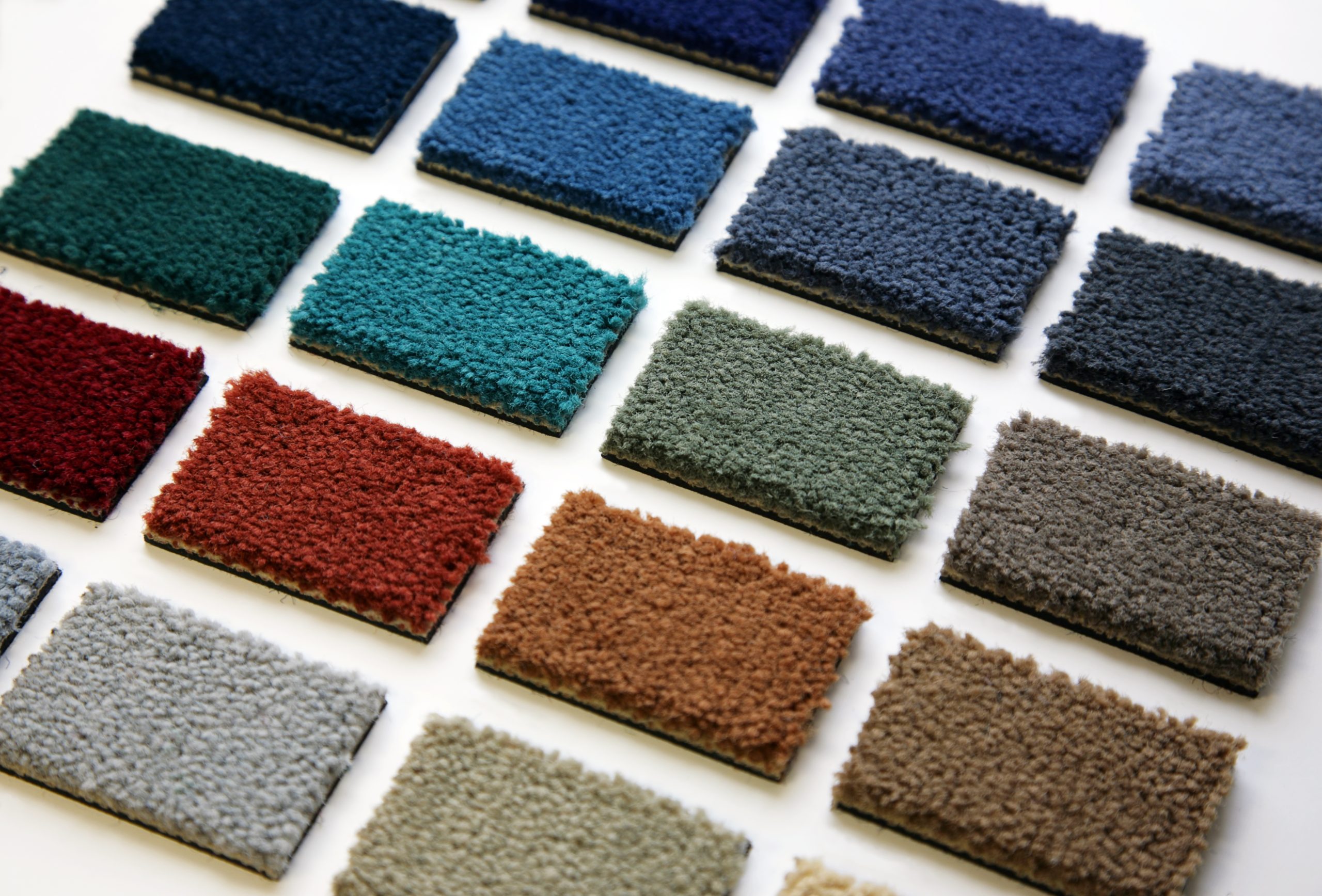
AdobeStock by Offscreen.
<h2><span data-contrast="auto">The Ministry of Education has signed an $7 to 8 million deal to fit around 600 – 800 small and rural schools with nylon carpet tiles.</span><span data-ccp-props="{";201341983";:0,";335559739";:160,";335559740";:259}"> </span></h2>
<p><span data-contrast="auto">The deal was won by Miliken, a US based carpet supplier, and the decision has sparked outrage among the public, some of whom feel that our primary industries were snubbed. </span><span data-ccp-props="{";201341983";:0,";335559739";:160,";335559740";:259}"> </span></p>
<p><a href="https://www.schoolnews.co.nz/latest-print-issue/" target="_blank" rel="noopener"><strong>Read the Term 3 edition of <em>School News</em> HERE</strong></a></p>
<p><span data-contrast="auto">Head of Campaign for Wool Tom O’Sullivan said that farmers were “aggrieved and insulted”. He characterised the decision as hypocritical and not aligned with New Zealand’s wider environmental goals. The decision to use nylon carpets has come as the single-use plastic ban comes into effect.</span><span data-ccp-props="{";201341983";:0,";335559739";:160,";335559740";:259}"> </span></p>
<p><span data-contrast="auto">“Farmers are doing all they can to help the Government with this green agenda around the environment and climate change and then you have something like this when the Government is blatantly not supporting them back,” said O’Sullivan. </span><span data-ccp-props="{";201341983";:0,";335559739";:160,";335559740";:259}"> </span></p>
<p><a href="https://www.newstalkzb.co.nz/on-air/mike-hosking-breakfast/audio/tom-osullivan-and-sam-fowler-campaign-for-wool-nz-and-education-ministry-property-head-on-opting-for-an-american-supplier-for-carpet-at-600-schools/" target="_blank"><span data-contrast="none">In an interview with Newstalk ZB</span></a><span data-contrast="auto">, O’Sullivan elaborated that since the carpet was being installed in rural communities, many of whom are involved the long-declining wool industry, the Ministry’s decision was “a real kick in the guts”. </span><span data-ccp-props="{";201341983";:0,";335559739";:160,";335559740";:259}"> </span></p>
<figure id="attachment_27485" aria-describedby="caption-attachment-27485" style="width: 2560px" class="wp-caption alignnone"><img class="wp-image-27485 size-full" src="https://www.schoolnews.co.nz/wp-content/uploads/2023/08/AdobeStock_138747361-scaled.jpeg" alt="" width="2560" height="1707" /><figcaption id="caption-attachment-27485" class="wp-caption-text">AdobeStock by Africa Studio</figcaption></figure>
<p><span data-contrast="auto">But the Ministry of Education refutes the claim that a wool carpet is the more sustainable option. </span><span data-ccp-props="{";201341983";:0,";335559739";:160,";335559740";:259}"> </span></p>
<p><span data-contrast="auto">Sam Fowler, head of property at the Ministry of Education, said that the key focus on the tender process was on durability. He said that the product selected had a 15-year warranty, was largely made of recycled fibres, and was fully recyclable at the end of its life, all of which impact the sustainability of the carpet. </span><span data-ccp-props="{";201341983";:0,";335559739";:160,";335559740";:259}"> </span></p>
<p><span data-contrast="auto">As for the tender process, Fowler said that only one supplier proposed wool-tile carpet, but there were “issues” that needed to be addressed. Additionally, although this product used NZ-made wool the manufacturing occurred offshore. Fowler indicated that the Ministry of Education wouldn’t rule out wool carpet-tiles in future.</span><span data-ccp-props="{";201341983";:0,";335559739";:160,";335559740";:259}"> </span></p>
<p><span data-contrast="auto">Fowler also stated that the yarn was only one element of the carpet.</span><span data-ccp-props="{";201341983";:0,";335559739";:160,";335559740";:259}"> </span></p>
<p><span data-contrast="auto">“You’ve got the adhesives, the backing and other elements to it, and also all of these products are manufactured overseas so you need to take into account the broader sustainability of the product, not just the yarn,” said Fowler. </span><span data-ccp-props="{";201341983";:0,";335559739";:160,";335559740";:259}"> </span></p>
<p><span data-contrast="auto">Umesh Dayal of </span><a href="https://www.heritagecarpets.co.nz/about-us/" target="_blank"><span data-contrast="none">Heritage Carpets</span></a><span data-contrast="auto"> agreed with Fowler. Dayal stated that they “are not aware of a wool carpet tile that would meet the performance and sustainability requirements of the tender.</span><span data-ccp-props="{";201341983";:0,";335559739";:160,";335559740";:259}"> </span></p>
<blockquote>
<p><span data-contrast="auto">“All commercial carpet tiles in NZ are imported. The impact of nominating a non-NZ company (in all taxpayer funded projects) is wider than just to the flooring industry. Once costs and taxes are paid, profits for offshore companies leave NZ.</span><span data-ccp-props="{";201341983";:0,";335559739";:160,";335559740";:259}"> </span></p>
</blockquote>
<p><span data-contrast="auto">“We know that government procurement guidelines promote access for locally owned businesses and that in this case it wasn&#8217;t a consideration.”</span><span data-ccp-props="{";201341983";:0,";335559739";:160,";335559740";:259}"> </span></p>
<p><span data-contrast="auto">But it’s not just farmers who are upset over the decision – some schools aren’t happy either. </span><span data-ccp-props="{";201341983";:0,";335559739";:160,";335559740";:259}"> </span></p>
<p><a href="https://enviroschools.org.nz/" target="_blank"><span data-contrast="none">Enviroschool</span></a><span data-contrast="auto"> Pūrākanui Primary’s principal </span><a href="https://www.odt.co.nz/business/school-floored-govt%E2%80%99s-carpet-choice" target="_blank"><span data-contrast="none">Nicky Bell told the ODT</span></a><span data-contrast="auto"> that the decision was “totally hypocritical” and “extremely disappointing”. </span><span data-ccp-props="{";201341983";:0,";335559739";:160,";335559740";:259}"> </span></p>
<p><span data-contrast="auto">“No one wants ugly synthetic carpet squares that does not align with our values. It just really goes against everything we stand for,” said Bell. </span><span data-ccp-props="{";201341983";:0,";335559739";:160,";335559740";:259}"> </span></p>
<p><span data-contrast="auto">Bell’s sentiment was echoed by other rural schools. New Zealand Rural Schools Leadership Association president Andrew King stated that some schools set to receive the new flooring would refuse it out of principle. </span><span data-ccp-props="{";201341983";:0,";335559739";:160,";335559740";:259}"> </span></p>
<p><span data-contrast="auto">“There’s a few boards I know of that don’t want it in their school and they intend to decline having the carpet installed,” said King. </span><span data-ccp-props="{";201341983";:0,";335559739";:160,";335559740";:259}"> </span></p>
<blockquote>
<p><span data-contrast="auto">“The point of view of a lot of rural schools is [wool carpet] is a local product, it’s fire retardant, odour resistant, long-lasting [and] more environmentally sound to be buying local.” </span><span data-ccp-props="{";201341983";:0,";335559739";:160,";335559740";:259}"> </span></p>
</blockquote>
<p><span data-contrast="auto">Despite claims that wool is more naturally fire-retardant than the nylon alternative being used by the Ministry, a spokesperson has confirmed that the nylon carpet meets national building standards and safety requirements.</span><span data-ccp-props="{";201341983";:0,";335559739";:160,";335559740";:259}"> </span></p>
<p><span data-contrast="auto">Almost 7000 people have now signed a petition calling for NZ-made wool carpets to be used instead, despite the Ministry’s statement that none of the proposals used New Zealand manufactured carpets. </span><span data-ccp-props="{";201341983";:0,";335559739";:160,";335559740";:259}"> </span></p>
<p><span data-contrast="auto">“The government needs to have their actions match their aspirations around climate change,” commented one person on the petition. </span><span data-ccp-props="{";201341983";:0,";335559739";:160,";335559740";:259}"> </span></p>
<p><span data-contrast="auto">However, one spokesperson for the Ministry of Education said that contract had been signed and would not be renegotiated, though they reconfirmed that the decisions over carpet would lie with each individual school. </span><span data-ccp-props="{";201341983";:0,";335559739";:160,";335559740";:259}"> </span></p>
<p><span data-contrast="auto">“The Ministry doesn’t advocate for specific products and in school-led projects involving the installation of carpet, schools are able to make their own product choices,” said Fowler. </span><span data-ccp-props="{";201341983";:0,";335559739";:160,";335559740";:259}"> </span></p>
<p><span data-contrast="auto">“State schools have the option to install carpets of their choice using other captial funding they recieve for property improements,” added Ministry spokesperson Scott Evans. </span><span data-ccp-props="{";201341983";:0,";335559739";:160,";335559740";:259}"> </span></p>

Teacher guide for the new PAT tuhituhi | writing assessment for Years 5 to 10…
Banning AI won’t cut it, says one science teacher. So how can schools and teachers…
Are stressed teachers contributing to the dysregulation we see in classrooms? Rebecca Thomas asks in…
Henbury School Principal Sarah Corry offers a candid, heartfelt insight into leadership burnout, resilience, and…
For many of us, calling our teachers by their first names would have been unthinkable.…
NZEI Te Riu Roa is considering legal action against the government for the disestablishment of…
This website uses cookies.